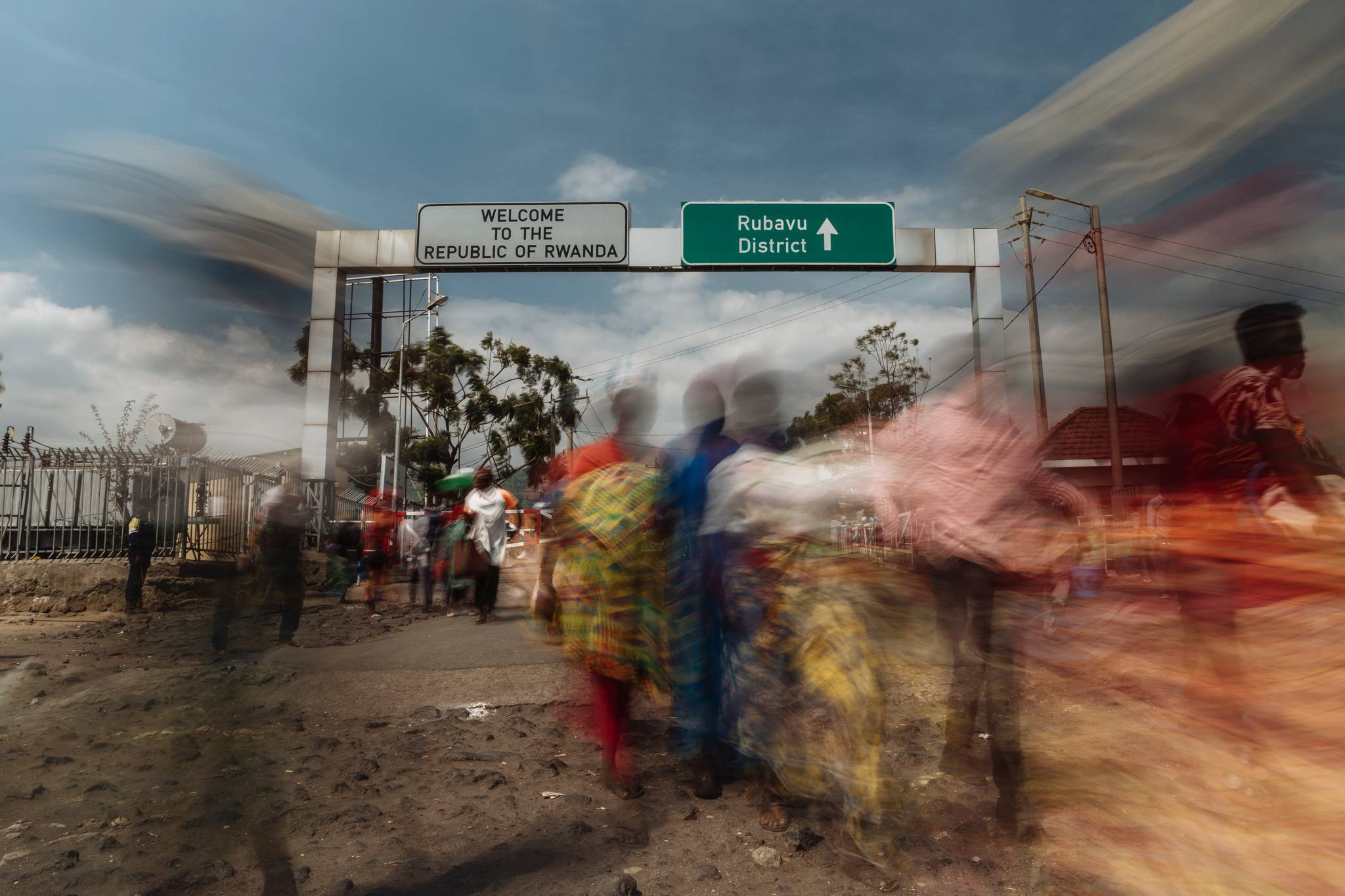
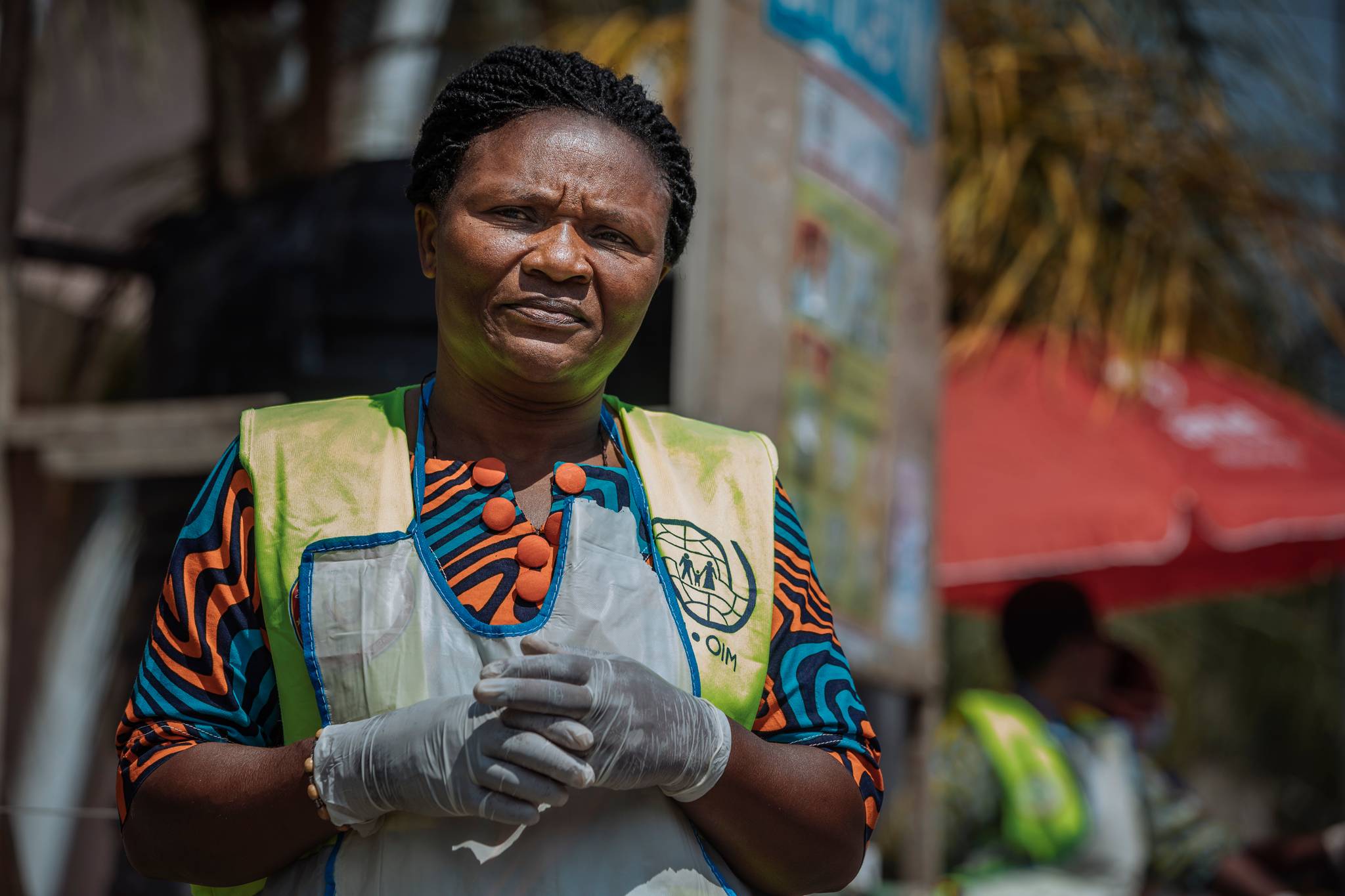
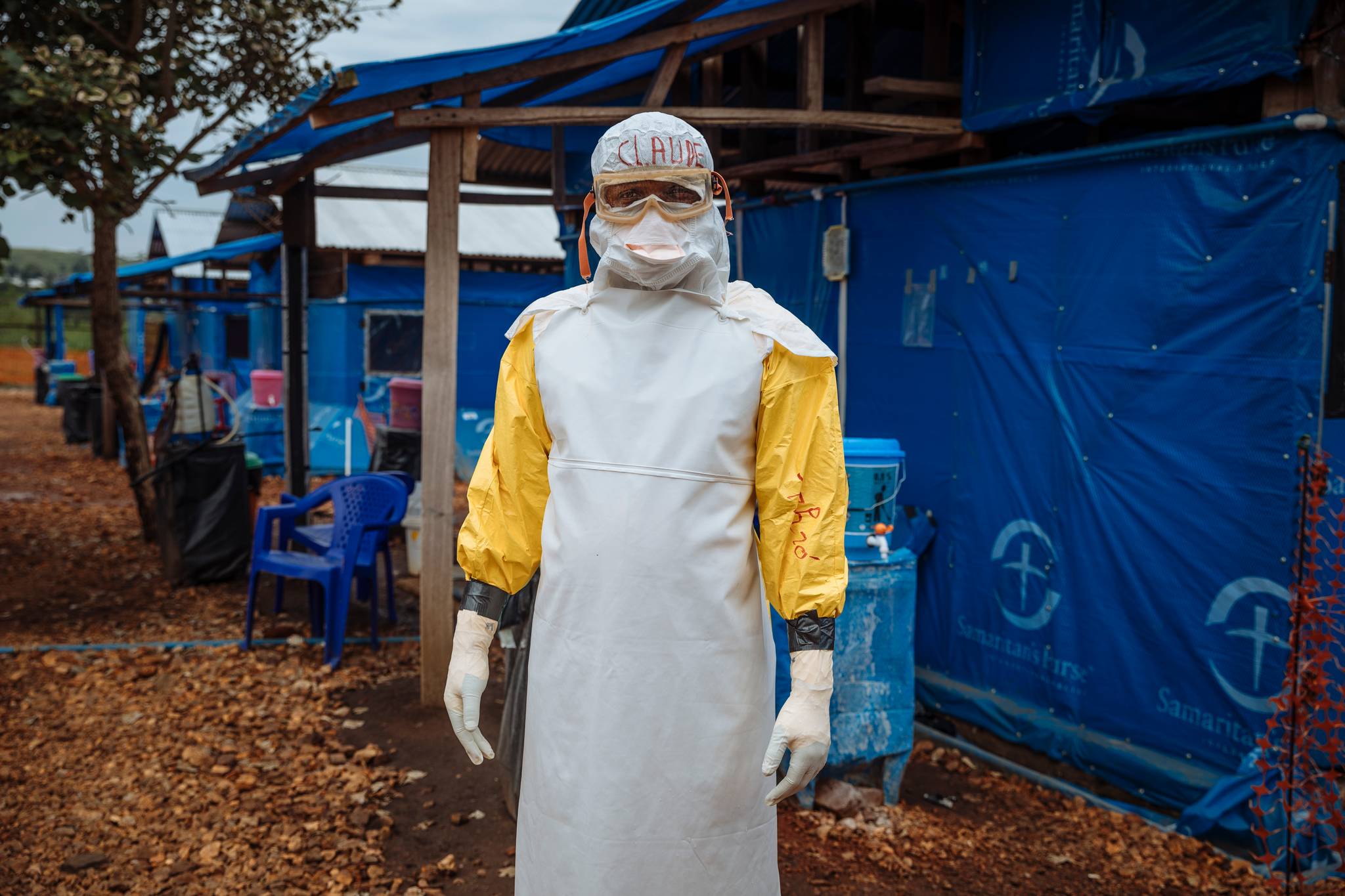
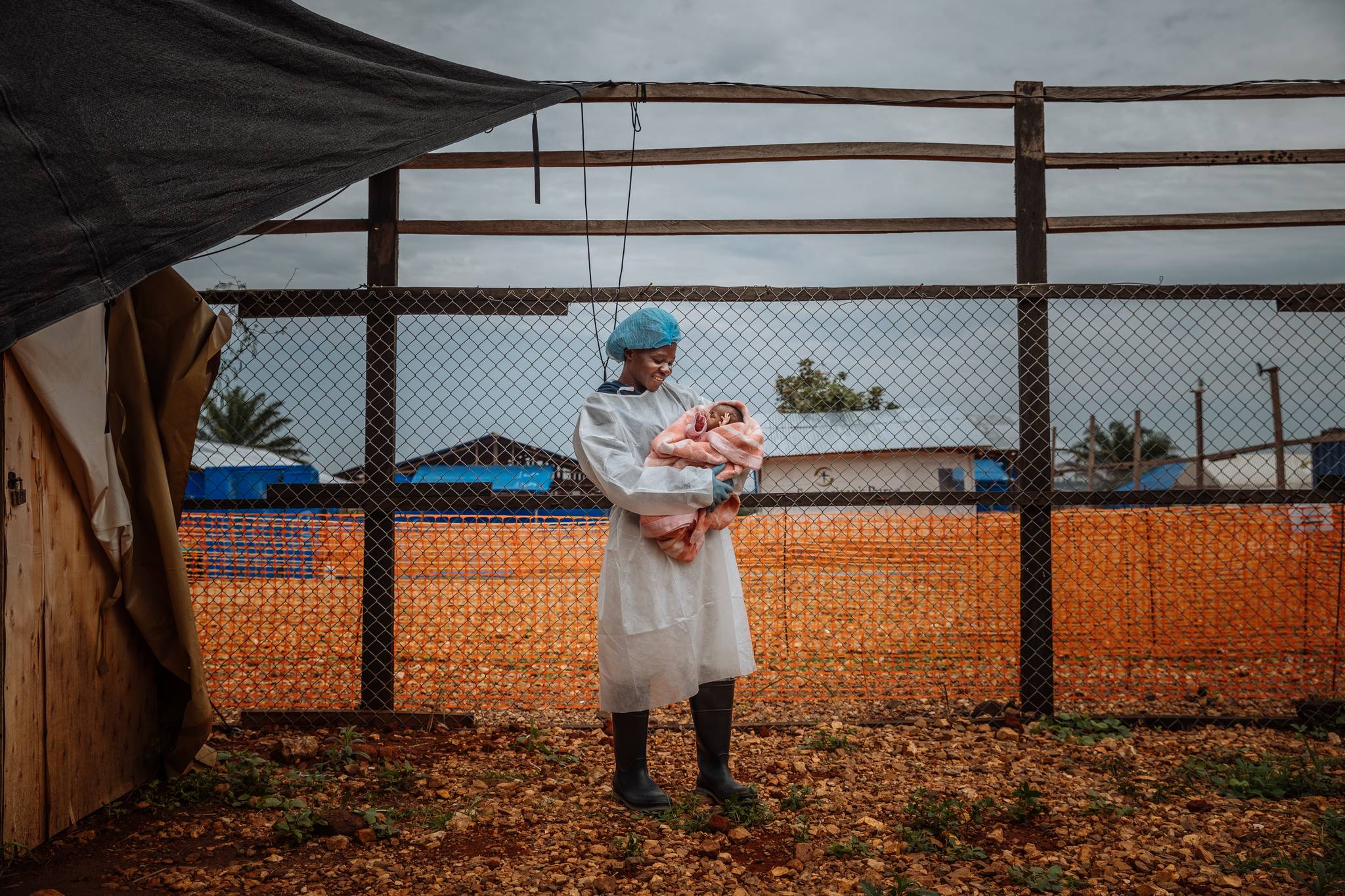
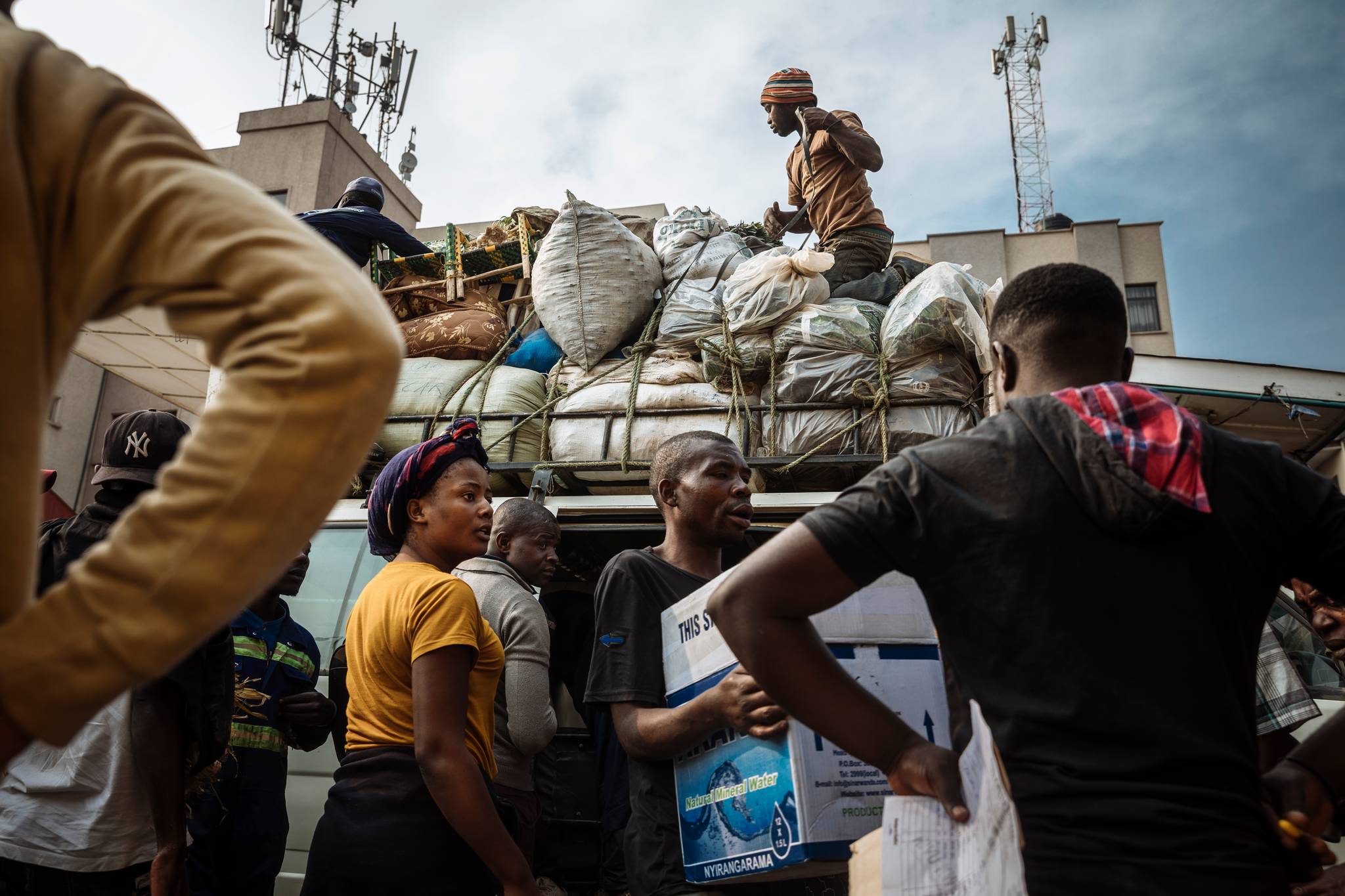
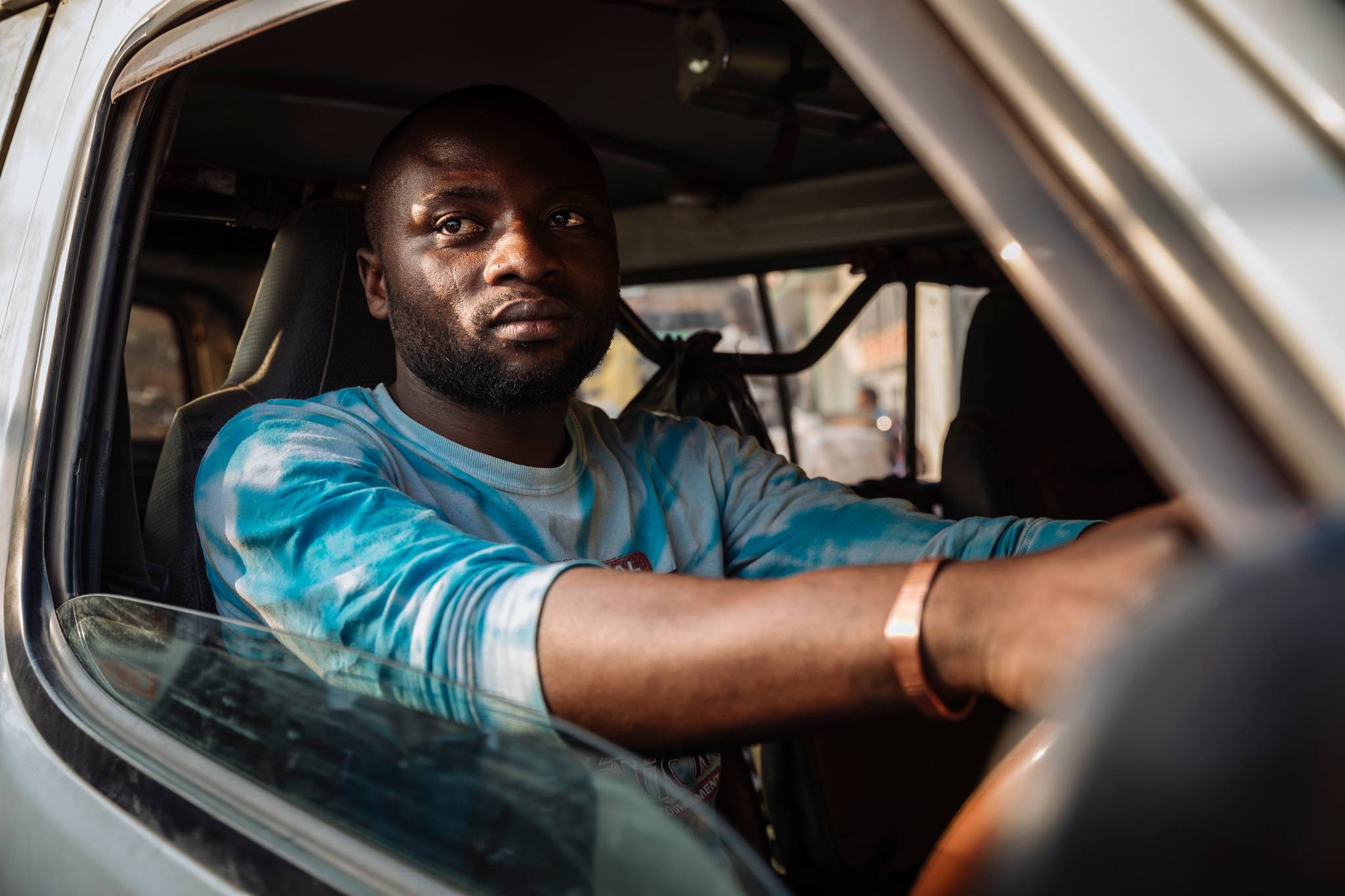
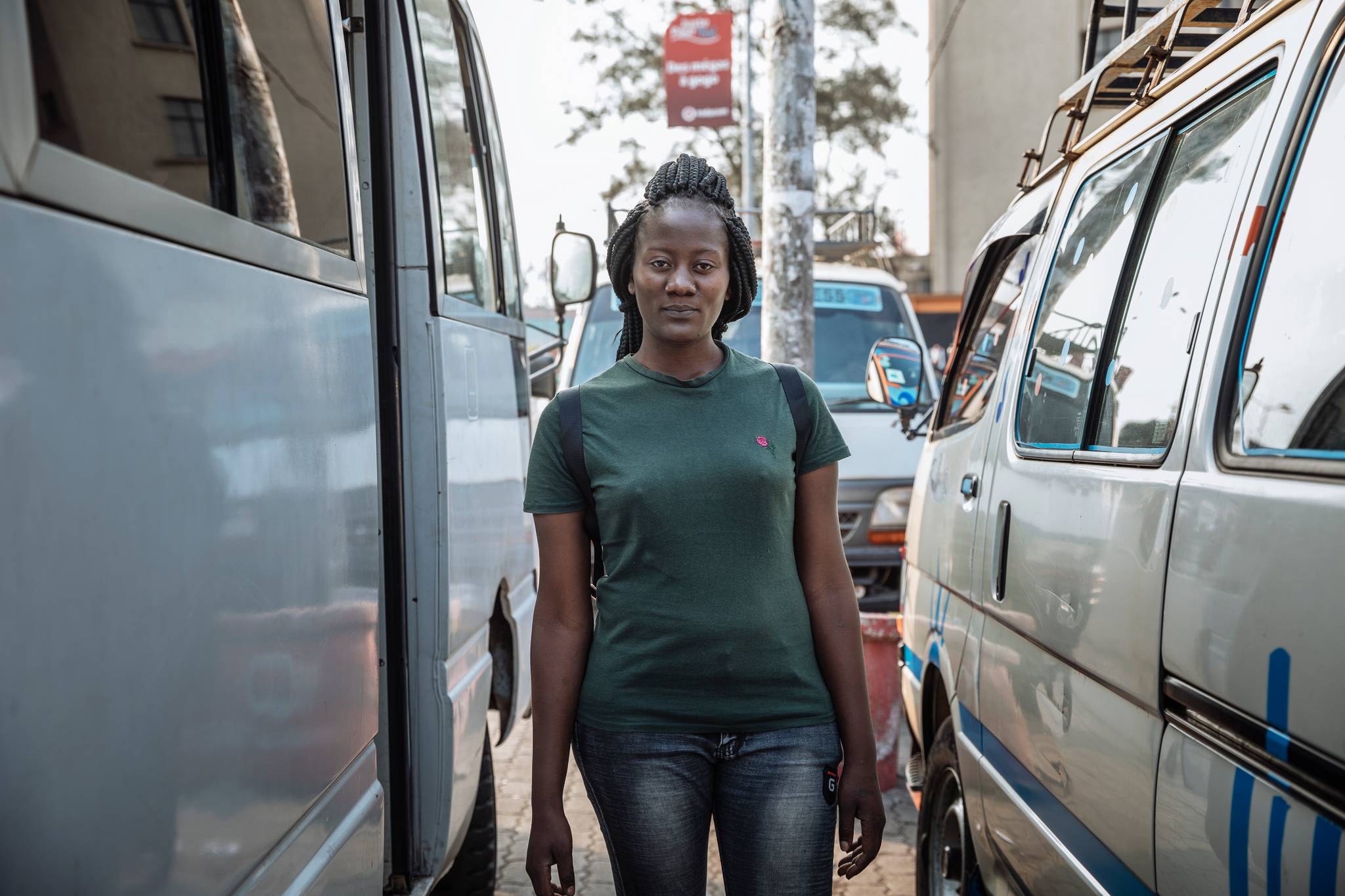
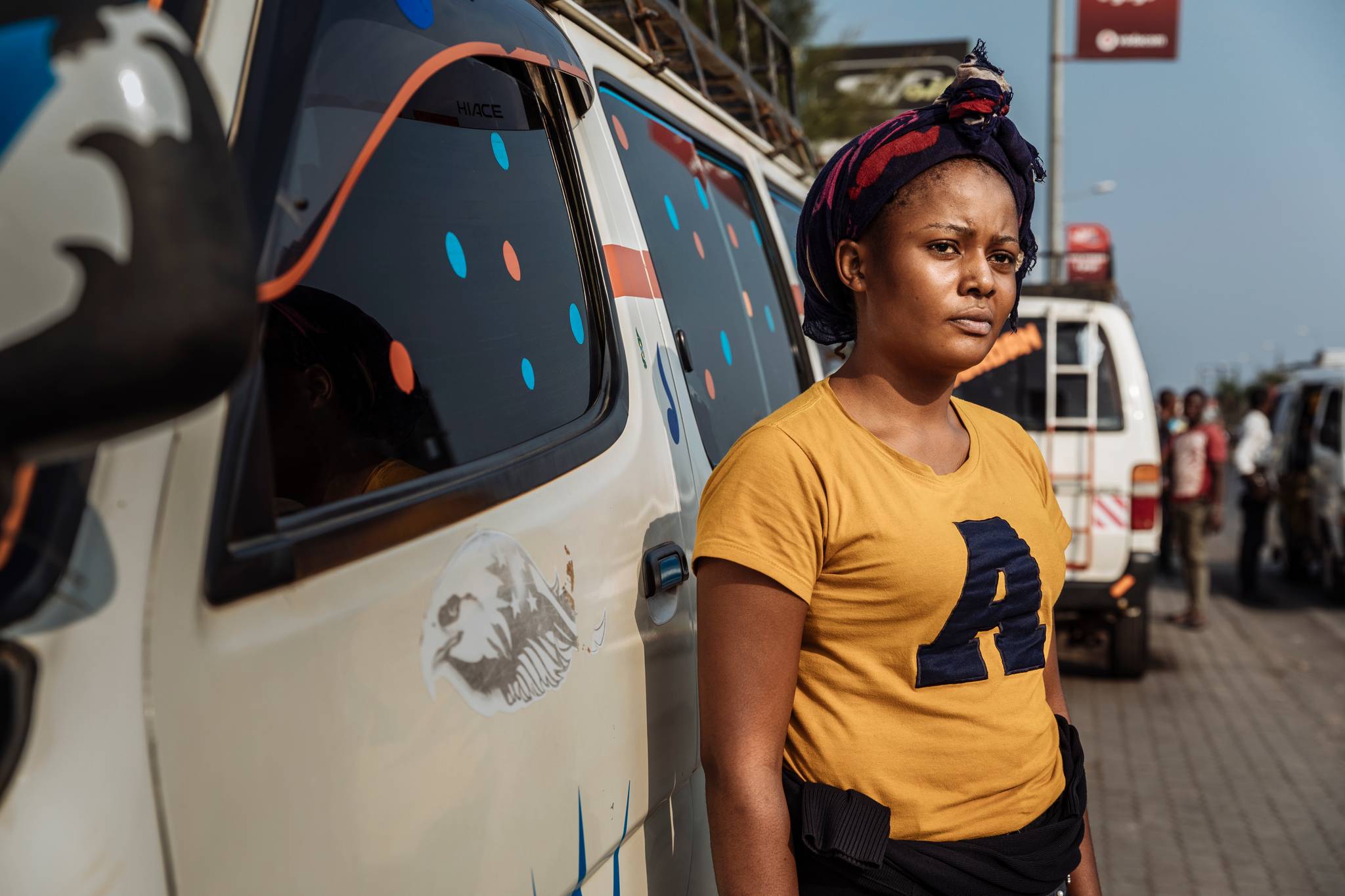
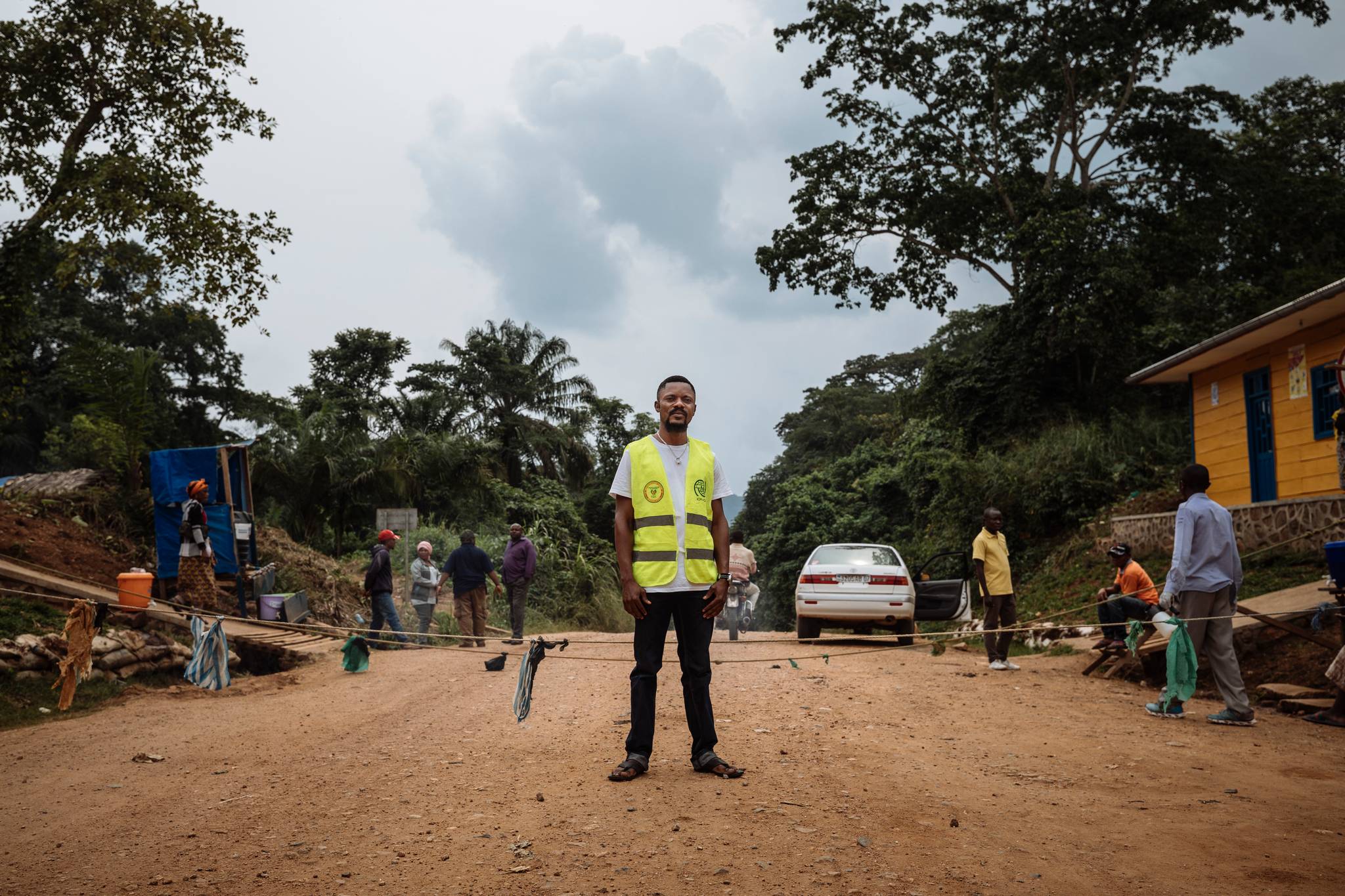
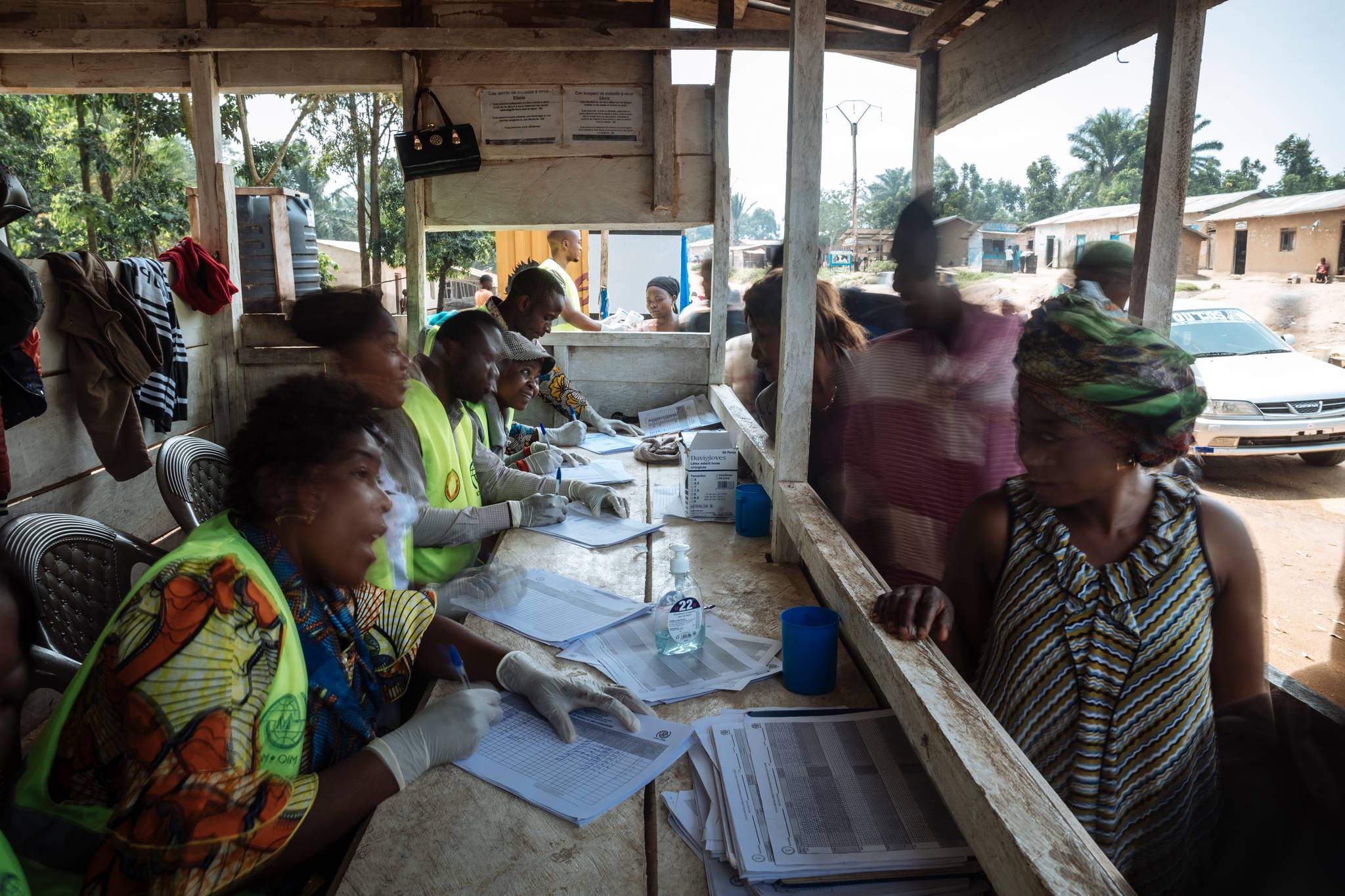
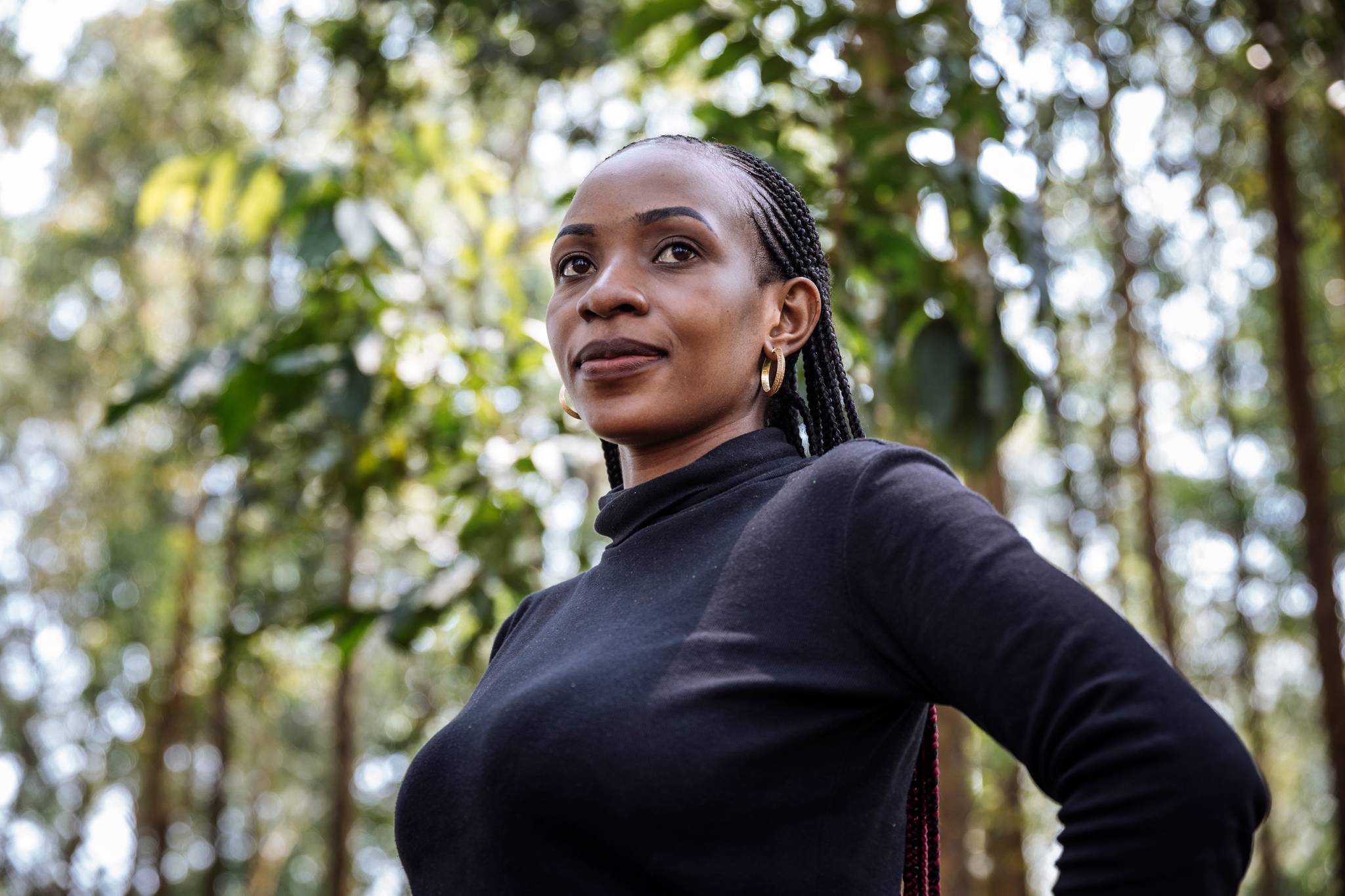
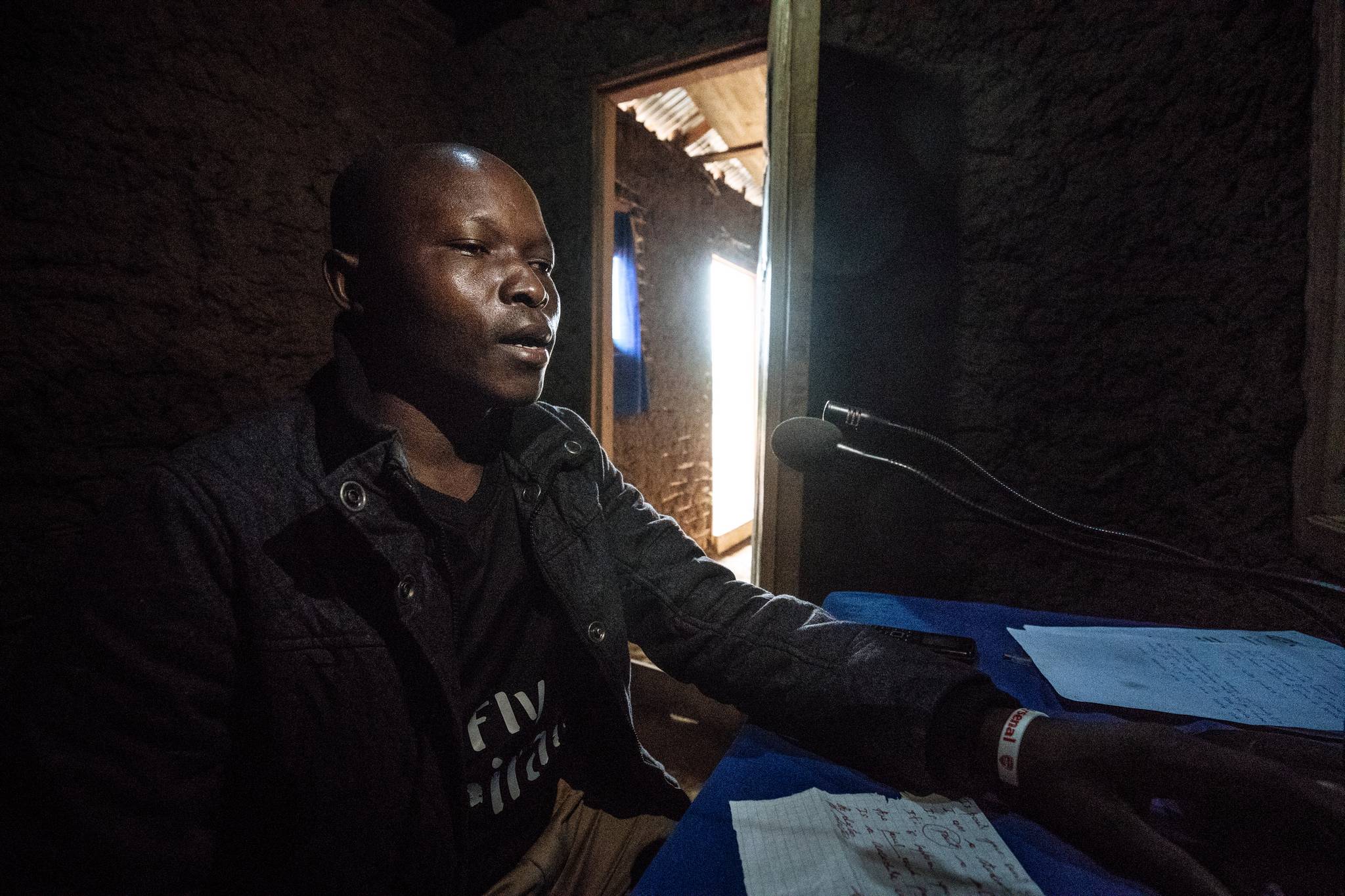
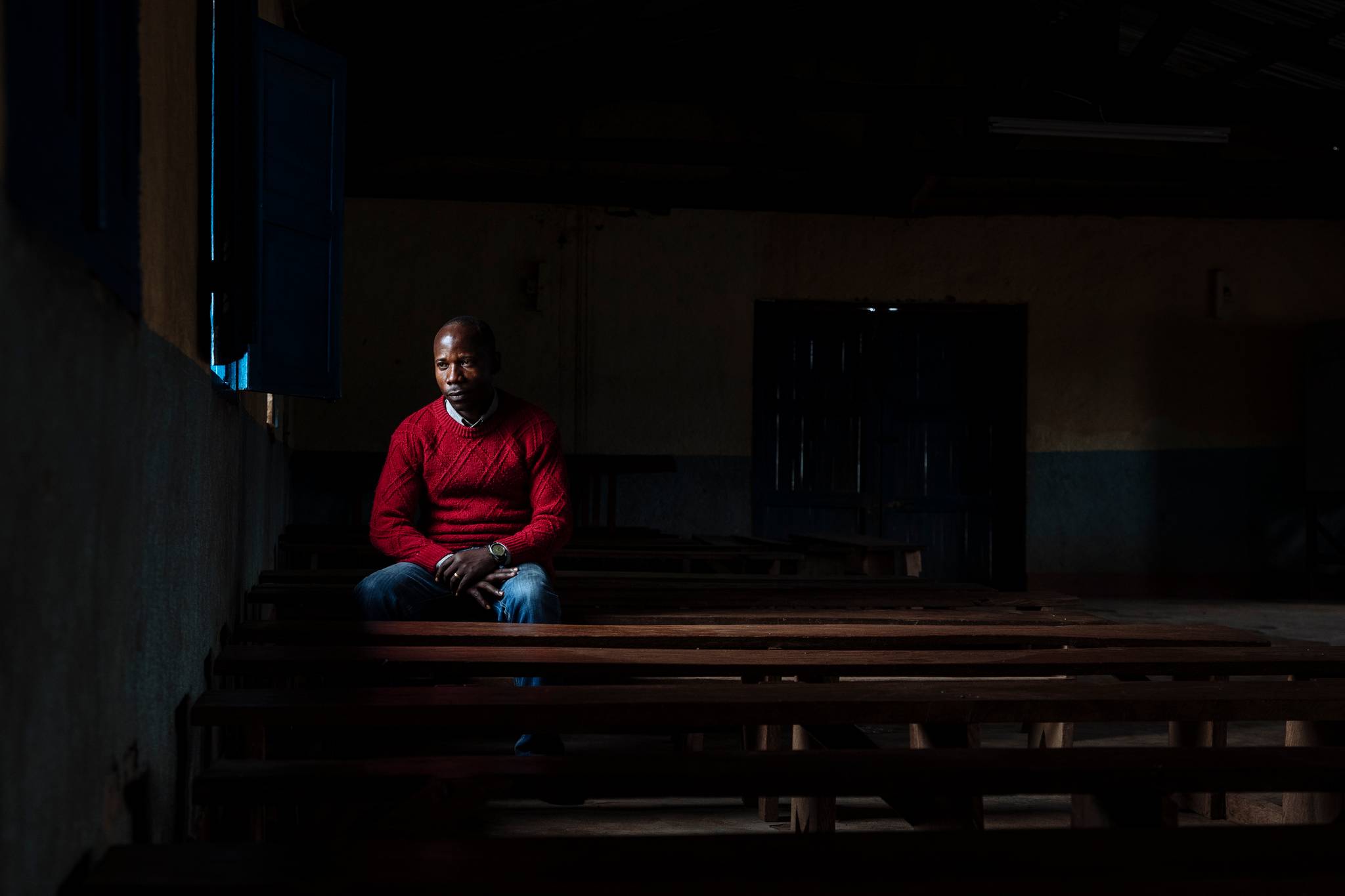
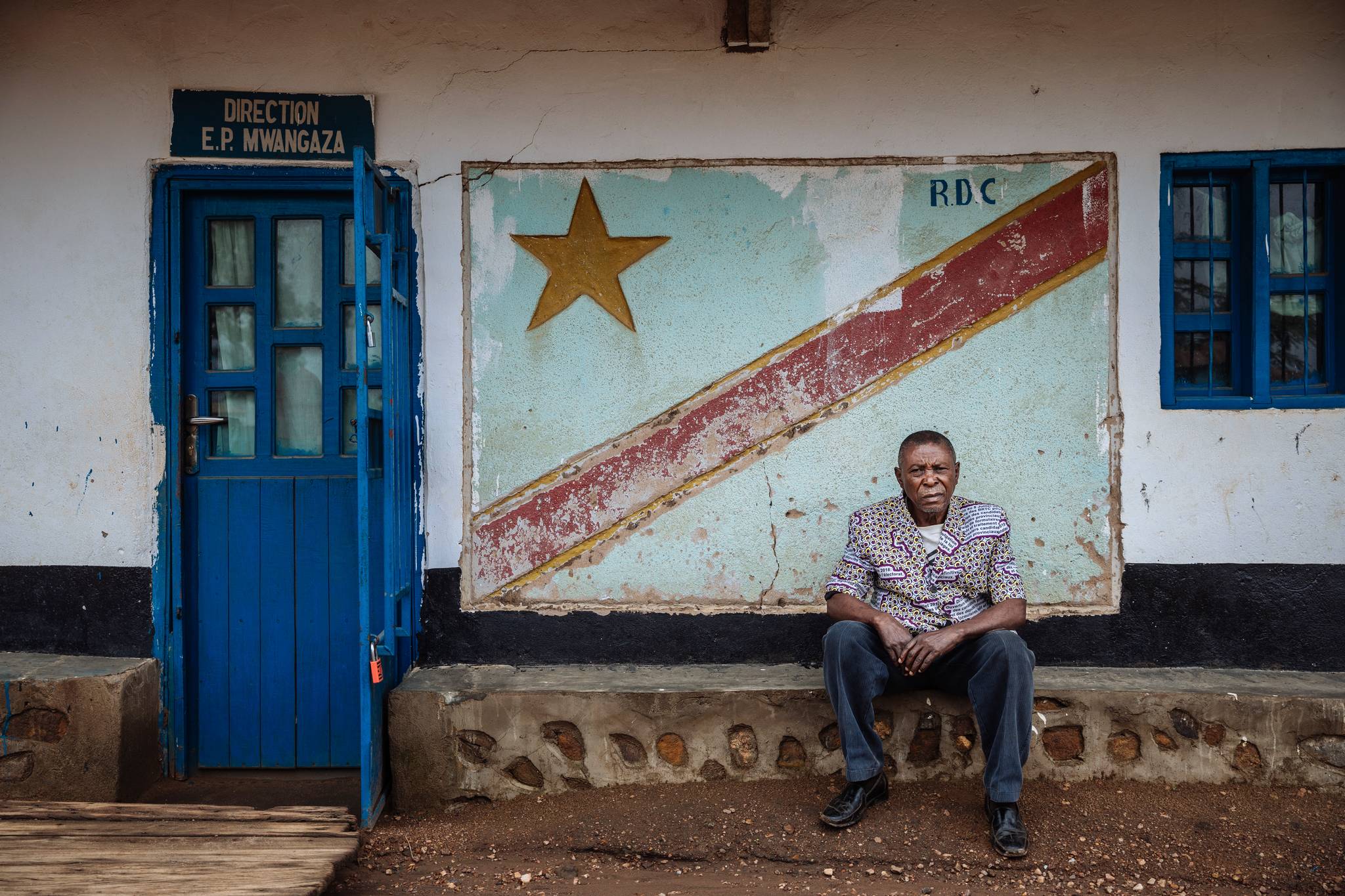
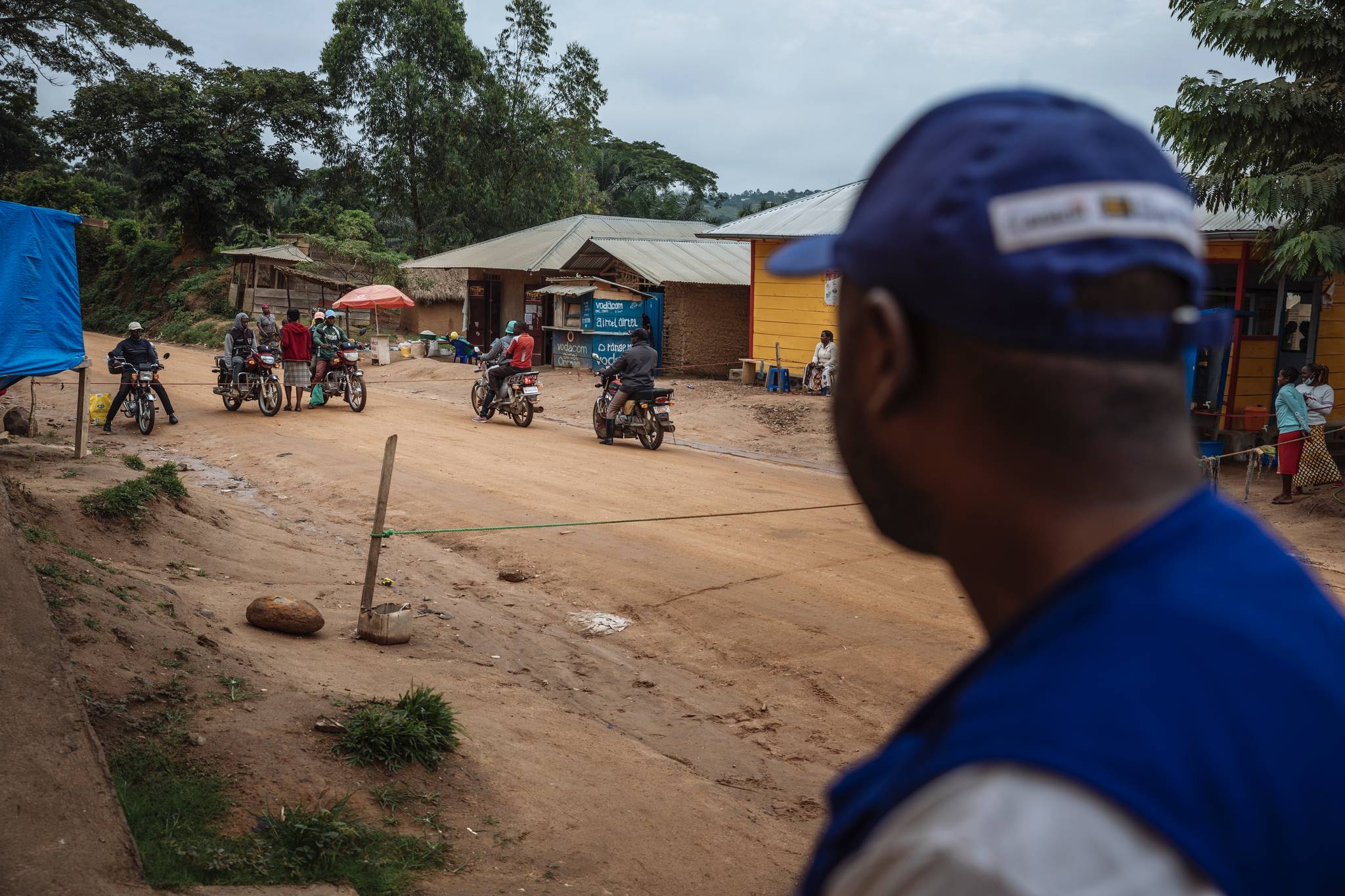

Over the past year, Ebola has killed over 2,000 people in the Democratic Republic of the Congo across its Ituri and North Kivu provinces.
Combatting the spread of the virus, and overcoming the deep-seated myths and superstitions surrounding it, means gaining the support of everyone - from Ebola survivors and travel agents to preachers and bus drivers.
Many in these regions are constantly on the move in the pursuit of their livelihoods, going to markets and travelling to access goods and, in the process, they come into contact with countless others daily. Each of these encounters has the potential to spread the infection further.

Bita Bernadette observes travellers for symptoms of Ebola as they cross the Grande Barriere point of entry in Goma, the second main gateway linking the DRC and Rwanda. Front line workers like Bernadette help curb the spread of the virus at health screening points by referring travellers who might be sick to healthcare facilities. 'It is everyone's responsibility to protect themselves from Ebola and to defend their communities every day until the disease is eradicated. I feel good doing this job because I'm not only helping my own country but also neighbouring Rwanda and all its citizens.'

The centre has treated more than 600 suspected or confirmed cases of Ebola since the outbreak reached the area. Their staff includes health workers like Claude who come from the local community. 'It is really hot inside this suit, but we are used to it. It's our work. At the beginning we were fearful, but now I feel more secure here than at a normal hospital.'

Mulasi Musaba, an Ebola survivor, cares for the daughter of an Ebola patient at a treatment centre in Ituri Province. Survivors' personal experiences give patients hope. 'When I arrived here, I did not think I would ever get healed. But eventually I started to feel my body get stronger. Now I encourage other patients and tell them their situation can improve. I enter myself inside their worlds and speak with compassion.'

A busy bus station in Goma receives passengers from Ituri and North Kivu provinces where Ebola cases have surfaced in the past year.

Bus driver Mumbere Sindani Olivier transports passengers along roads cutting through Ebola-affected areas of the DRC. He is trained to detect symptoms of Ebola among passengers, encouraging them to wash their hands to prevent the spread of the disease. 'Sometimes I'm scared but we must do this job, we have no other choice. Our families rely on us and so do the travellers. They are going to see their families, transport goods to make a living and continue their lives.'

Daly Neema, secretary of the Goma-based Classic Travel Agency, has trained more than 100 bus drivers about techniques for preventing the spread of Ebola by detecting symptoms in their passengers. 'We need them to be an example to all travellers, because if they follow all the necessary preventative steps then others will too. Each driver has a responsibility to make sure their clients wash their hands and receive care if they are sick.'

Bukana Deno is a merchant who transports fruits and vegetables from her home in Butembo to sell in Goma. Like many others she relies on free movement along the highway to earn a living.

Giresse Otima Falao manages one of 84 screening points supported by the International Organization for Migration in the Ebola-affected areas in the DRC. 'This Point of Control helps prevent the disease from spreading from Mambasa territory or Butembo town. If we find someone with a suspiciously high temperature, we stop them and alert another team who comes to investigate the case and decide how to help them,' said Falao.

Front line workers at points of control register passengers, cross-checking names with a list of people who have been in contact with anyone infected with the disease. If a contact arrives, they are counselled on the risk and encouraged to receive follow-up assessment at the closest treatment centre. Contacts are kept on this list for 21 days.

Kavugho Ngitsi Giresse contracted Ebola last year after losing her son to the virus. She now works at a screening point in Beni where she encourages travellers who have come into contact with the disease to receive medical care. 'I was pregnant when I learned I had contracted Ebola. I lost consciousness. I had just lost my child to the disease and I couldn't believe that I could survive, I thought it was a death sentence. When I held my baby for the first time I felt immeasurable joy. The advice I give to people who contract Ebola is to not fear, it is possible to survive, especially if they get treatment early,' said Giresse.

Anyozo Omani runs the radio station in Komanda which broadcasts to nearly 30,000 people in the area. 'The station is the first thing that reaches everyone. Sometimes survivors call in to our show and admit they didn't believe the disease was real until they got infected and realised they could die. When people leave the clinics, they are super appreciative and call in to remind people how important it is to protect themselves. When survivors speak, people take their message to heart.'

More than 5,000 people attend Saint Emmanuel's Church in Komanda where Pastor Josue, in his weekly sermons, dispels myths that Ebola is a form of black magic. 'If my parishioners want to pray for someone who is infected or died from Ebola, I tell them to do so from a distance. I discourage the notion that only God can protect them. Everyone must take individual responsibility.'

Kahindo Musavuli is the director of Komanda Primary School where 3,000 students begin their school days with lessons about hand-washing and other practices to stop the spread of Ebola. 'In the beginning, we thought Ebola was a story from far away which would never affect us. Then we started to live in it and realised how real it was. I teach the kids about it so when they go home they'll tell their parents how serious it is. My mission is to keep all the kids in my school Ebola-free.'

“When foreigners from other parts of the Congo or even other countries began flooding into rural communities that were not in contact with outsiders, people began to resist the notion that they needed to take the disease seriously. Many people correlated it to political problems in the country, some thought it was a form of black magic or just a way for the responders to have employment. We must chip away at the myths slowly.”